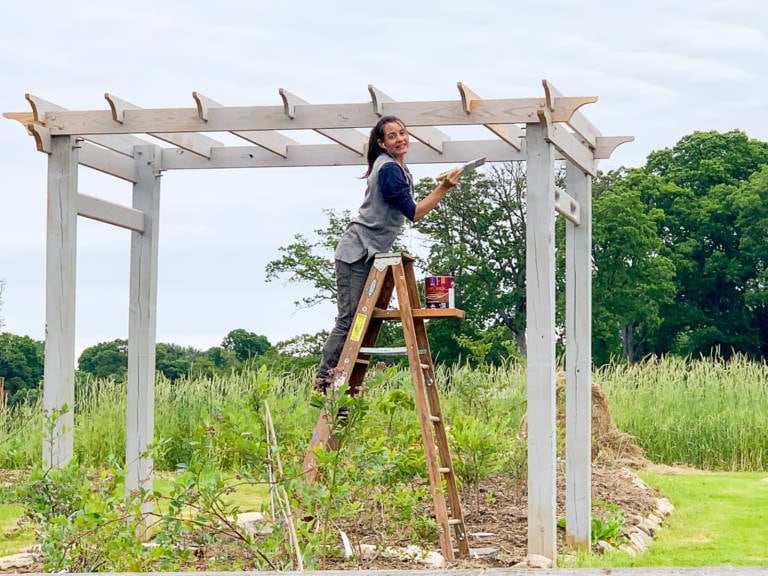When the Twin City Garden Club (TCGC) in Winston-Salem asked Crossnore’s Miracle Grounds Farm for a project request, little did they know that the answer would lead them on a beautiful learning adventure. In February of 2019, plans began for a “Permaculture Food Forest” on the beautiful Winston-Salem campus farm with an initial donation of $20,000 from the amazing garden club.
A vision for a Sanctuary Garden.
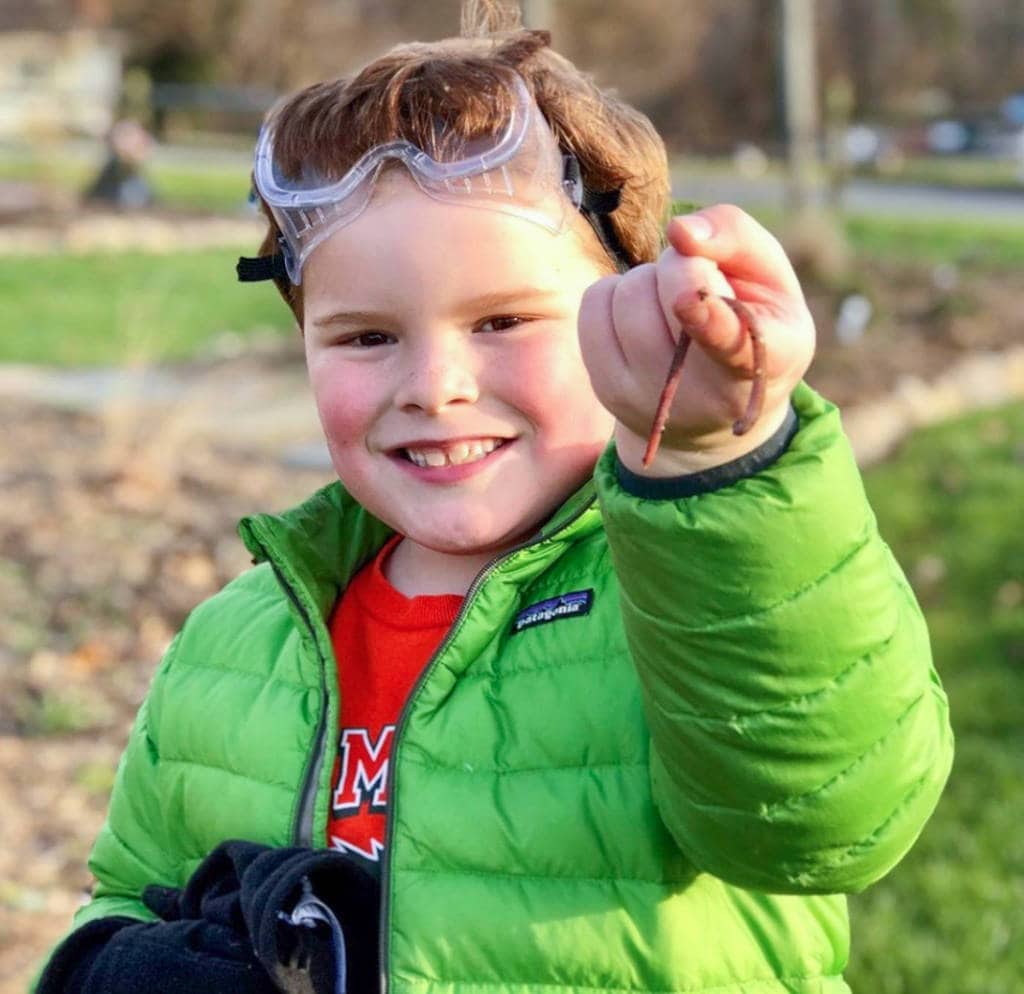 Crossnore’s vision was to have a sanctuary garden, not only to benefit the children here, but one that could serve as a model for others in the community. Through this garden, the children will also learn the healing power of nature. Our hope is that this is one of many similar gardens that spring up around our community, in low income neighborhoods and public schools especially. Scottie Neill, president of TCGC, says, “Digging in the soil is good for mental health. It creates trauma resiliency, and healthy soil creates healthy food, which leads to healthy bodies and healthy minds.”
Crossnore’s vision was to have a sanctuary garden, not only to benefit the children here, but one that could serve as a model for others in the community. Through this garden, the children will also learn the healing power of nature. Our hope is that this is one of many similar gardens that spring up around our community, in low income neighborhoods and public schools especially. Scottie Neill, president of TCGC, says, “Digging in the soil is good for mental health. It creates trauma resiliency, and healthy soil creates healthy food, which leads to healthy bodies and healthy minds.”
Many of the members of the TCGC have ties to Crossnore, dating back to when it was The Children’s Home. The ladies have a long-standing relationship through years of volunteering and financial support. Scottie began her own connection with Crossnore as a farm feeder years ago. She’s not the only one who has volunteered up at the farm, and several of the members are also Cottage Sponsors. “We knew this project would involve helping children, connecting the community, and of course, was garden related. It checked all the boxes,” Scottie says.
The group was also fascinated by this new-to-them concept of permaculture gardening. Julie Miller, Chairman of the TCGC Crossnore Garden Committee laughs, “We didn’t know what permaculture was. Most of us didn’t know what we were getting into.” Through research and partnership, everyone soon learned. The food forest would be a quarter acre self-sustaining garden with both edible and sensory elements, each species of plant feeding the other from the tips of the roots to the tree canopy. Courtney Branch, Miracle Grounds Farm Coordinator, says, “It stands for ‘permanent agriculture,’ planting in such a way that you create a system that supports the entire plant life cycle.”
Building community.
Although the desire was that the forest would eventually build and connect community, a sense of community began even in the planning. What God calls us to, He equips us to complete, and this was no different. A daughter of one of Scottie’s friends, Lucie Kulce, is a permaculturist in Charleston, SC. Scottie and she talked first by phone about the project, and afterward, she sent a two page document that ended up being the entire foundation of the plan. Then, Scottie just happened to run into her friend, Laurie Durden, who is a landscape designer in Charlotte. She was inspired by the idea and used Lucie’s notes and a satellite picture of the land to draw up a plan. After that, the community kept growing.
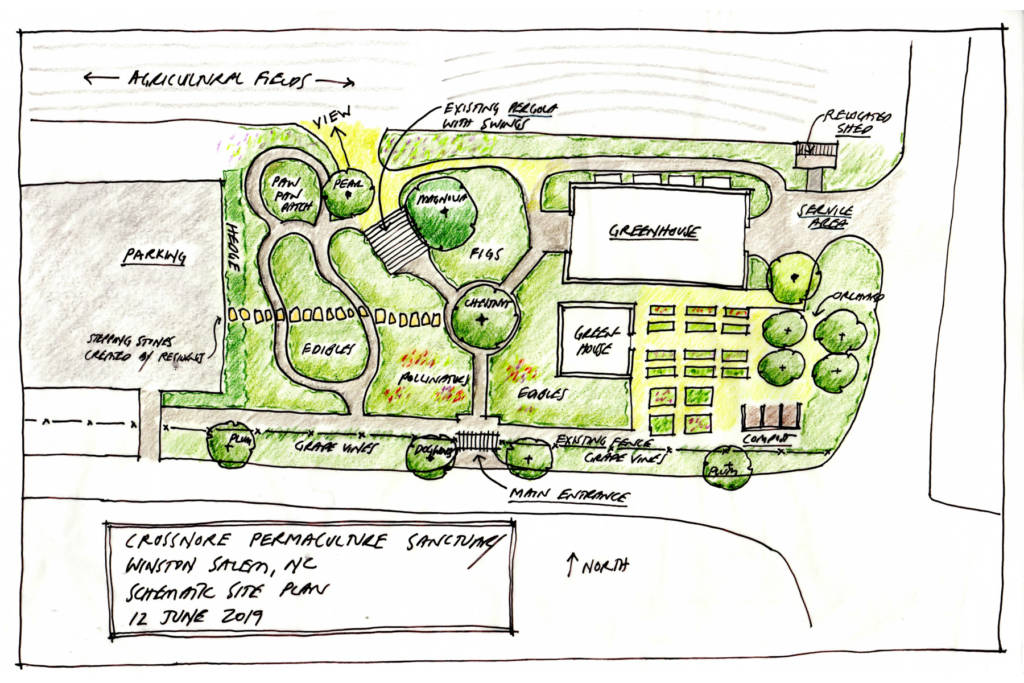 In June of 2019, TCGC broke ground on the permaculture forest. Scottie and Courtney laid out the plan with tomato stakes. Love Out Loud volunteers enthusiastically worked in 90+ degree heat to put down cardboard – a natural, biodegradable grass suppresser – that was donated by Bowen Town and Country. David Lusk, of Lusk Tree Service, donated dirt to go on top of the cardboard.
In June of 2019, TCGC broke ground on the permaculture forest. Scottie and Courtney laid out the plan with tomato stakes. Love Out Loud volunteers enthusiastically worked in 90+ degree heat to put down cardboard – a natural, biodegradable grass suppresser – that was donated by Bowen Town and Country. David Lusk, of Lusk Tree Service, donated dirt to go on top of the cardboard.
Permaculture: How it’s done.
The concept of permaculture gardening is to create “lasagna layers” as you build the garden. First the cardboard, then hay, dirt, and manure, which we had plenty of, thanks to our lovely farm animals. Next the TCGC’s donation purchased high quality, rich soil and mulch to top that. Next came the cover crop of buckwheat. This cover crop naturally keeps the weeds down and enriches the soil with nutrients. After that layer came native species – paw paw, plum, fig, apple, and persimmon trees, blueberries, mulberries, gogi berries, wild strawberries, and various pollinators species.
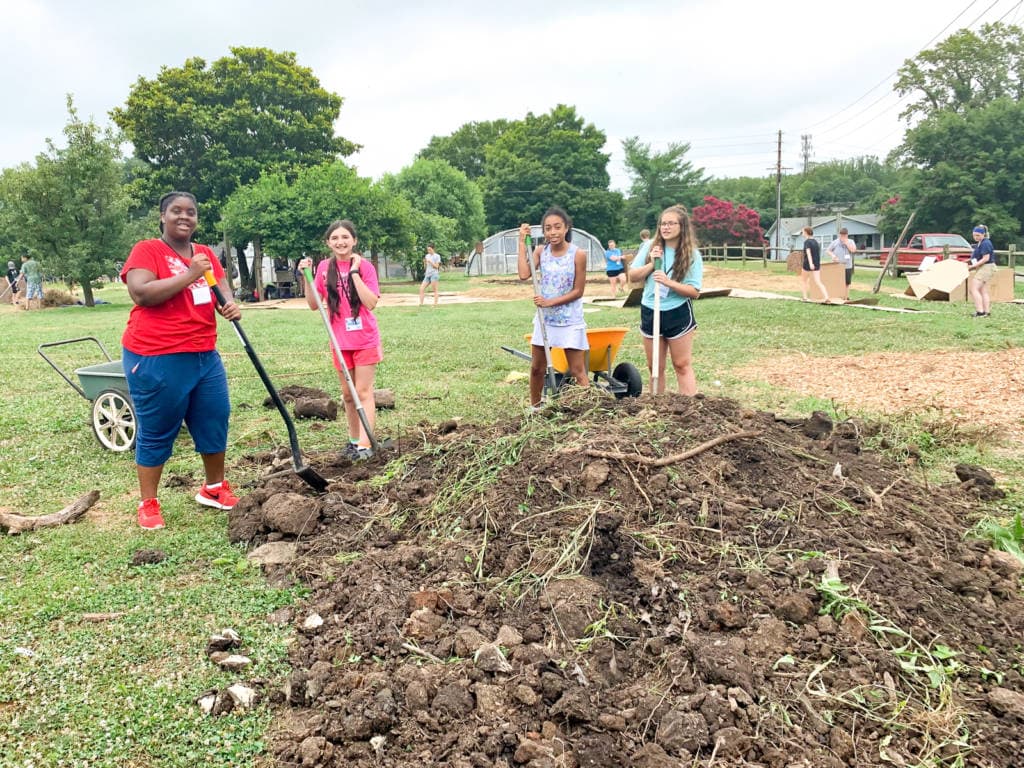
There are various elements to the forest including an edible garden, a pollinator garden, a healing garden and meditative space, and an ecosystem food forest, which demonstrates the entire life cycle of a plant. TGCG’s donation also provided a new side entrance arbor, furniture for the preexisting arbor area, rock borders, money to fix up the greenhouses, needed tools for the projects, and covered half of the needed funding for a well to irrigate the farm and garden.
Continued growth.
But they didn’t stop there. TCGC then applied for the Garden Club of America’s Founders Fund grant to continue their work. The grant, in the amount of $30,000, is given to a local garden club doing a project that will “seed the future” and “bridge communities.” TCGC made it to the top three finalists, and then won! The Founders Fund Grant will provide garden signage, educational material, an interactive play water feature, child friendly hand irrigation and water stations, solar lighting, and a soil lab. TCGC also applied for and received a Beautification Grant from the Garden Club Council of Winston-Salem. That additional $3,956 in funding will help purchase more plants and materials to create a rain collection garden.
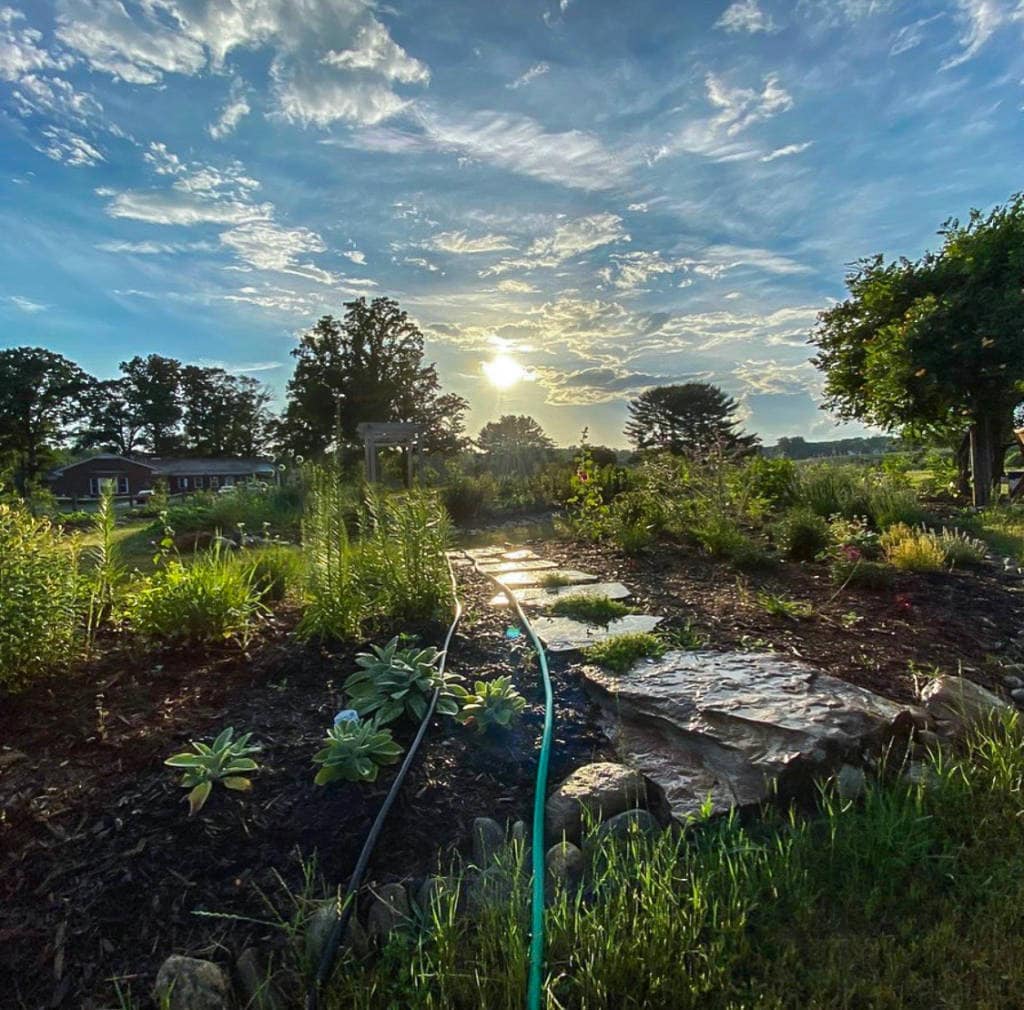
“Without these extra grants we might be done now,” says Julie. “It would be over. But now it can go so much further than we ever could have imagined.” Courtney has big plans for the future of the space. She wants to get the residential children and Kingswood Community students more involved at the farm. She hopes the therapists will bring their clients up to the healing garden for therapy sessions. In the future, she wants outside educators to come on site to teach – plant dye and art classes, urban farming, classes on permaculture sustainability, soil science in the soil lab with microscopes. The possibilities are endless.
The hope for healing.
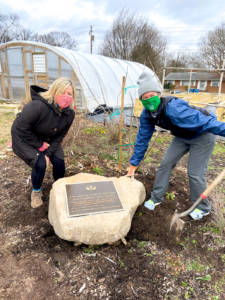
But even more than the education piece, all involved hope the garden will be healing – helping restore souls through soil. This beautiful forest is one more way Crossnore continues to create a sanctuary of hope and healing for the children who find themselves on campus. Resilience. Regeneration. Growth. Progress. Sustainability. Good things coming from manure, even. All of these things you can learn in a garden. Our therapists and staff will be able to connect children to the soil, drawing metaphors to trauma cycles, building resilience, and creating hope for beautiful things to come.
“We hope we have developed the foundation for a garden that will continue to evolve and grow over the years,” says Julie. “We hope it will be a place of learning and healing, of peace and rejuvenation. We hope, someday, that it’s used by everyone here, that everyone will feel like it’s ‘their’ garden, not a place you have to ask permission to go. And we hope that it will serve as a model for others in the community.” Scottie agrees. “Nature is so important to mental health. Being outside is so healing. And working and weeding sparks great conversation.”
Learning to be still.
“It’s probably one of the prettiest places in Winston-Salem,” Scottie says. “There is always a breeze under the arbor and there is nowhere else to see a prettier sunset.” So in this garden, we will all learn to be still – to stop, look, breathe, and truly rest. We’ll look around us and see that hope and growth lie just around the corner. We work and wait for healing and gain power over painful pasts. And maybe, just maybe, we’ll smell some lavender, feel that sweet breeze, and glimpse the sun dip beautifully down behind the horizon while we do it.
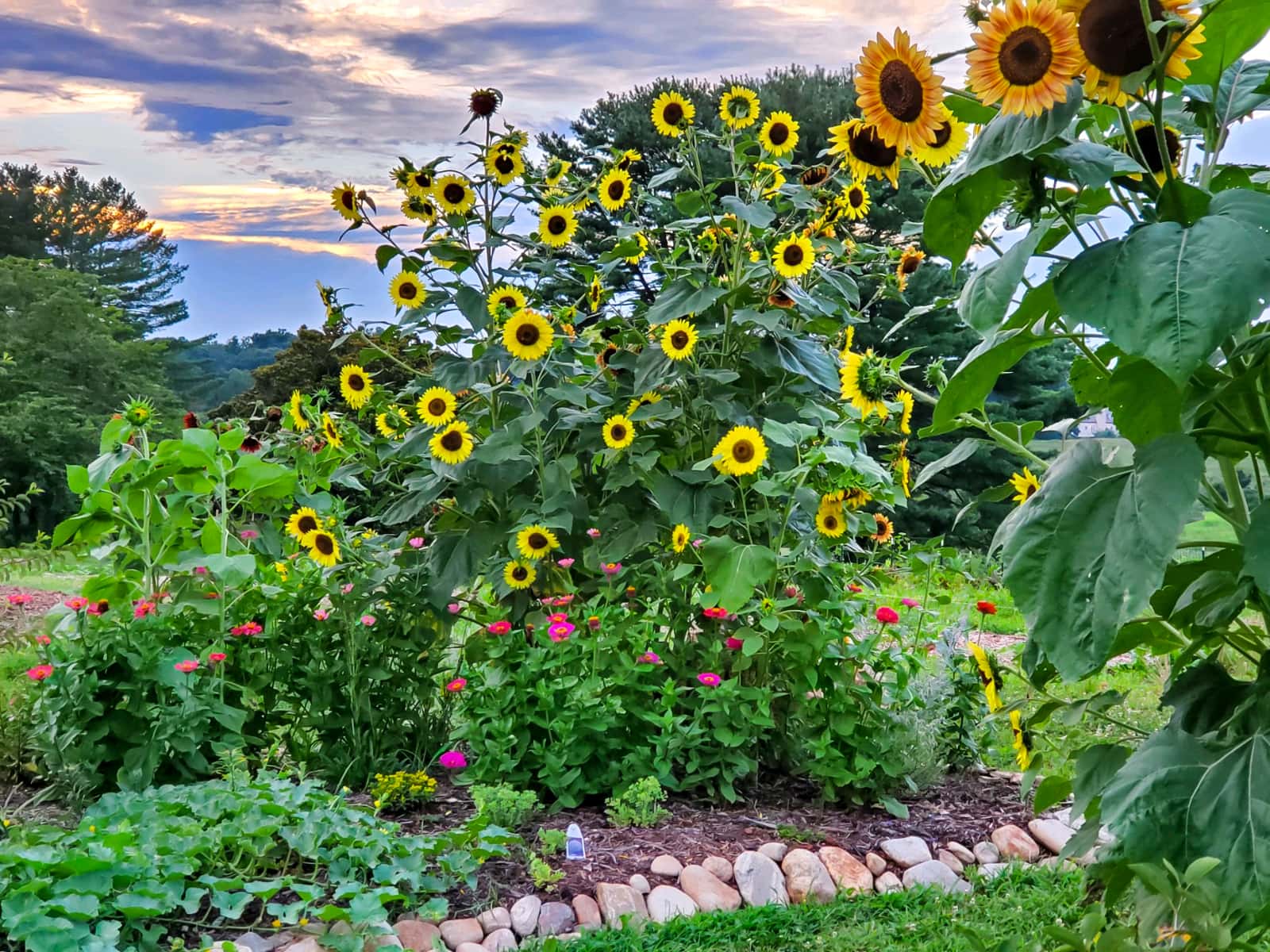
To find out more about what’s going on at the farm and for volunteer opportunities, visit https://www.crossnore.org/miracle-grounds-farm/.
